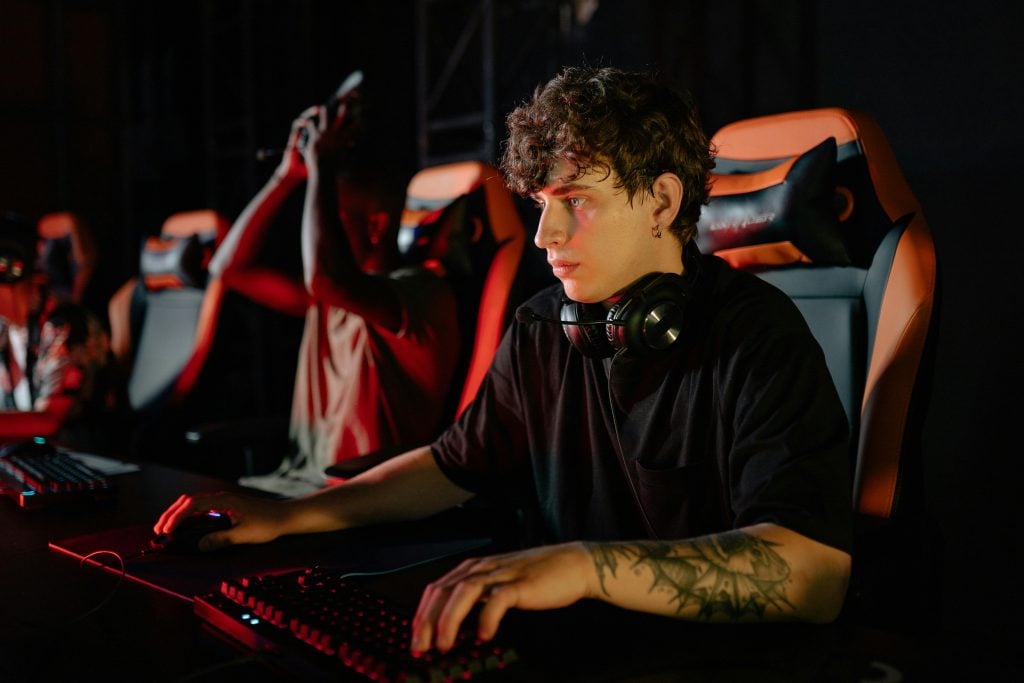The thing about online gaming is that for games to stand out, they need to think of something really smart and eye-catching. There is one kind of game that has done this particularly well and it’s called Counter-Strike 2. As you likely already know, this is a game where you’re a free person shooter and you go around trying to complete a mission. It’s a lot of fun but there are quite a few games out there that are similar. For CS2 to stand out, they thought of something ingenious, namely, offering customizable skins. No, not skins for the players but skins for the weapons, like gloves that you put on to make your weapon stand apart.
Still not getting it? Well, then you’re in luck because you’re about to. Below you’ll find a quick and easy explanation of what a CS2 skin is, how you should go about purchasing one, what they’re good for and if they’re really worth all the fuss.
What Are CS2 Skins?
Okay, starting right at the beginning. Skins in CS2 are cosmetic items that change the appearance of weapons, knives and gloves in the game. They don’t impact gameplay, accuracy or power, so buying a skin doesn’t give you an edge in combat. This is important for you to know because a lot of people think it gives them an edge and it doesn’t; it just makes you more stylish.
Each skin comes with different features that affect how it looks, including:
- Rarity tier (some are more common than others)
- Condition, such as Factory New or Battle-Scarred
- Float value, a more precise measure of wear and tear
- Stickers or patterns, which can increase their uniqueness or value
Purchase Skins Through the Game’s Official Marketplace
Buying CS2 skins isn’t complicated but it’s worth knowing the different ways to do it so you can find the best deal and avoid any trouble along the way. One of the most straightforward ways to buy skins is through the game’s built-in marketplace. You’ll use your account balance and you’re guaranteed to get what you pay for. The downside? Prices can be a bit higher than third-party options and you won’t be able to trade or resell skins right away after purchasing.
Think About Using Third-Party Marketplaces
There are several trusted platforms outside the game where players buy, sell and trade skins. These marketplaces often offer lower prices and more flexibility when it comes to trading. Just make sure the site you use is reputable and secure, such as SkinSell.com, as this can have a big impact on the process and experience.
Look for:
- Clear buyer protection policies
- Transparent pricing
- Verified seller ratings
- Secure payment methods (credit card, PayPal, etc.)
Another Tactic is Buying Directly from Other Players
Some players prefer trading directly with others, using in-game trade offers. This method works well for those who are experienced and know the value of different skins but it’s riskier because if you’re new, you don’t know what to look for. There’s no buyer protection if things go wrong. Unless you fully trust the person you’re trading with, it’s safer to stick with marketplaces.
What to Look Out for When Buying Skins
If you’re spending real money on digital items, you want to make sure you’re getting something worthwhile. Here are a few things to watch for:
The first thing you’ll want to look at is the float value, which ranges from 0.00 to 1.00 and directly impacts how worn the item looks. A lower float means better condition. Skins are usually categorized into these conditions:
- Factory New (0.00–0.07)
- Minimal Wear (0.07–0.15)
- Field-Tested (0.15–0.38)
- Well-Worn (0.38–0.45)
- Battle-Scarred (0.45–1.00)
Even two skins with the same name and rarity can look very different depending on their float.
Then, it’s about patterns and stickers. Some skins have special patterns that are rare and desirable. For example, a knife with a “Doppler” pattern might come in different phases and certain ones are far more valuable than others. Stickers can also boost a skin’s price, especially if they’re from old or limited-time events.
Next, it’s price trends. Skin prices fluctuate based on demand, events and the game’s economy. Before buying, it’s smart to check how the price has moved over time. Some third-party sites even offer charts and graphs to track these trends. That way, you won’t overpay for a skin that might drop in value next week.
What You Can Use Skins For
Once you’ve got your hands on a skin, it becomes part of your in-game inventory. But its usefulness goes beyond just changing your weapon’s look. Some players treat skins almost like a form of investment. Rare skins can appreciate over time, especially if they become discontinued or are tied to a major tournament. People who pay attention to market trends and know what to look for sometimes make solid profits by buying and selling at the right times.
Skins are also a big part of CS2’s community culture. Discussions about designs, float values and sticker combos are everywhere. Some players create entire YouTube or Twitch channels dedicated to unboxings and trading. Being part of that scene adds another layer of enjoyment to the game.
All of this talk about skins is meant to show you that it’s supposed to be a fun addition to the game, so don’t overthink it too much.

Hi! I’m Bryan, and I’m a passionate & expert writer with more than five years of experience. I have written about various topics such as product descriptions, travel, cryptocurrencies, and online gaming in my writing journey.






